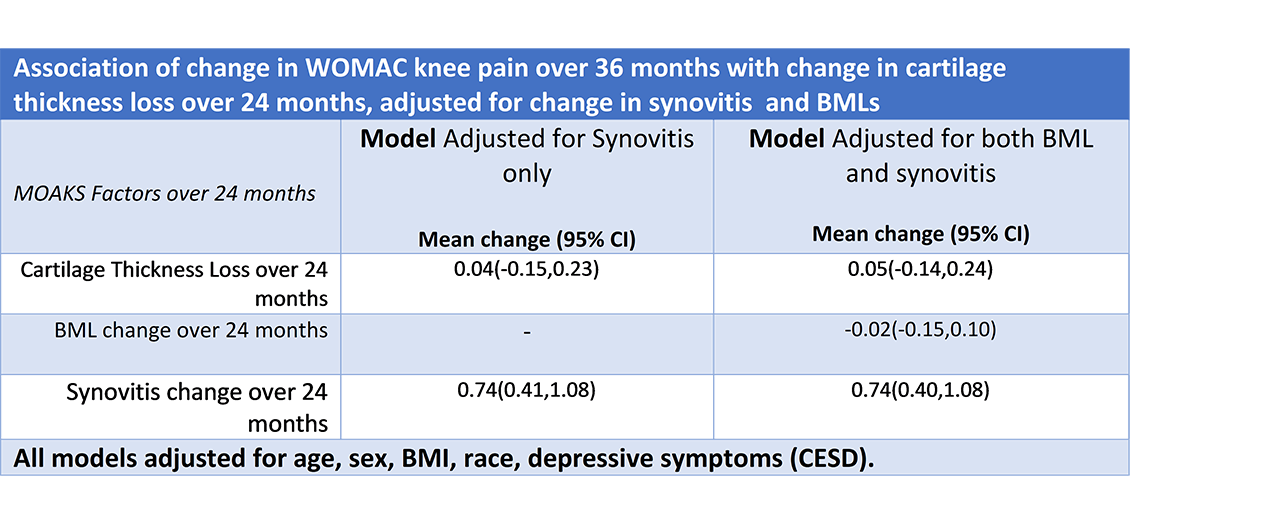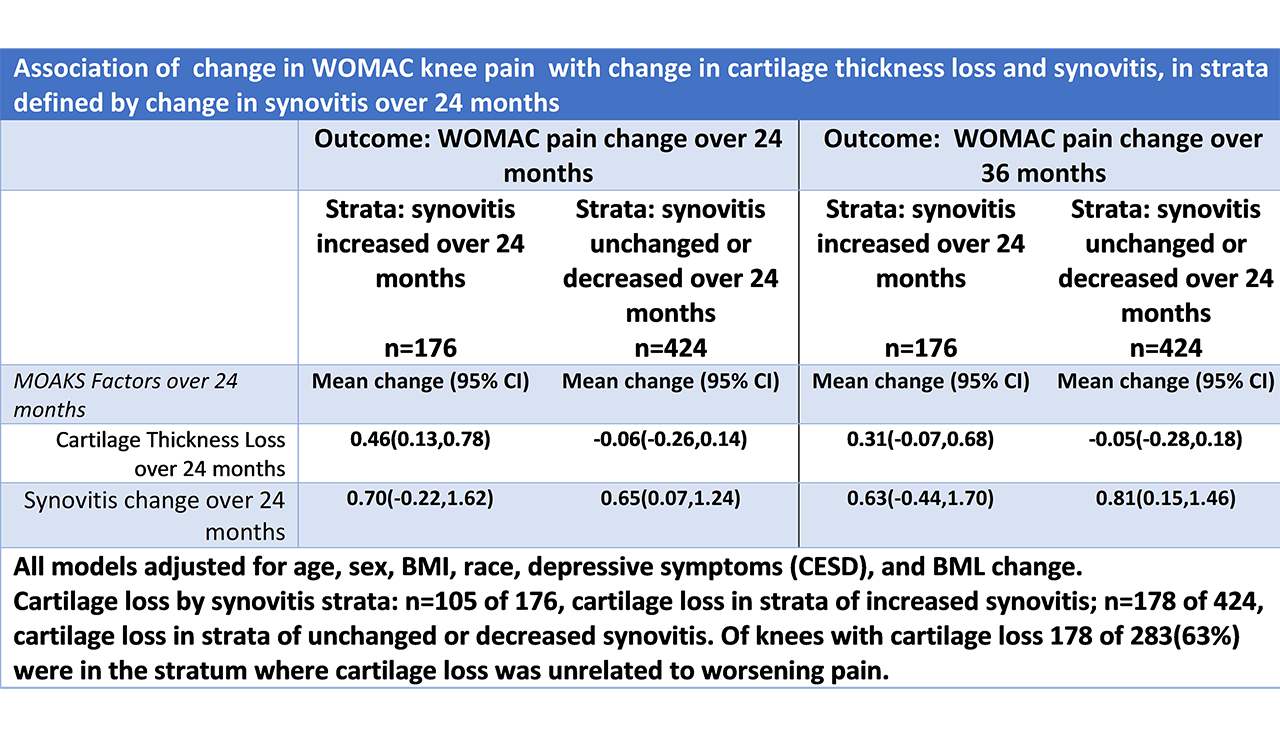Session Information
Session Type: ARP Abstract Session
Session Time: 2:30PM-4:00PM
Background/Purpose: Treatment development in osteoarthritis continues to focus on chondroprotection, but it is unclear if delaying cartilage loss would reduce joint pain. In published studies, less cartilage in a knee has not been consistently associated with more pain in the knee. Studies have not tested whether cartilage loss over time is associated with worsening pain and have not adjusted for other sources of pain. Further they have not examined whether synovitis, induced by cartilage loss, might mediate any effect on pain. Using observational data from the FNIH cohort within the Osteoarthritis Initiative, we tested whether cartilage loss was associated with worsening knee pain after adjusting for coexistent bone marrow lesions (BMLs) and synovitis and examined whether the association of cartilage loss with pain was mediated by worsening synovitis.
Methods: 600 knee MRIs were scored for structural features of OA using the MRI Osteoarthritis Knee Score (MOAKS) at the baseline, 12-month, and 24-month OAI visits. We focused on loss of cartilage thickness as our measure of cartilage loss, because extent of cartilage area loss was unassociated with pain in initial analysis. For each visit we created summary scores for synovitis (range 0-6, sum of Hoffa-synovitis and effusion scores), cartilage thickness loss (range 0-42, sum of 14 regions), and BMLs (range 0-45, sum of 15 region scores) and computed change scores for MRI features from baseline to 24 months. We used the WOMAC knee pain score (range 0-20) from each visit and calculated change from baseline to 24 and 36 months. Linear models calculated mean change in pain associated with cartilage thickness loss, adjusted for BMLs and covariates. We used approaches by VanderWeele to examine whether synovitis change mediated the cartilage loss-pain association longitudinally at 24 and 36 months. Analyses explored effects of cartilage loss on pain in strata defined by synovitis change.
Results: Mean age and BMI were 61.6 years (8.9) and 30.7(4.8), respectively. 59% were female. In cross-sectional analyses, cartilage thickness was significantly associated with WOMAC pain (mean change in pain score=0.2, 95%CI=0.1,0.3 per unit change in predictor) but this association weakened when BML score was taken into account (mean change=0.1, 95%CI=0.0,0.2). In analyses adjusted for BMLs but not those adjusted for synovitis, change in cartilage thickness was weakly associated with pain change over 24 months (see upper table). Cartilage thickness change over 24 months was not predictive of pain change over 36 months after adjustment for BML or synovitis change (middle table). Most of the association of cartilage loss with pain was mediated by synovitis change (mediation proportion 52%), and we found a significant interaction between cartilage loss and synovitis change such that loss of cartilage was associated with worse pain only in those with increasing synovitis over time (lower table). However, in most knees with cartilage loss, there was no increase in synovitis.
Conclusion: Cartilage loss is, at most, weakly associated with knee pain, and this association with pain appears to be mediated by change in synovitis.
To cite this abstract in AMA style:
BACON K, Michael L, Felson D. Does Cartilage Loss Cause Pain in Osteoarthritis? [abstract]. Arthritis Rheumatol. 2019; 71 (suppl 10). https://acrabstracts.org/abstract/does-cartilage-loss-cause-pain-in-osteoarthritis/. Accessed .« Back to 2019 ACR/ARP Annual Meeting
ACR Meeting Abstracts - https://acrabstracts.org/abstract/does-cartilage-loss-cause-pain-in-osteoarthritis/



